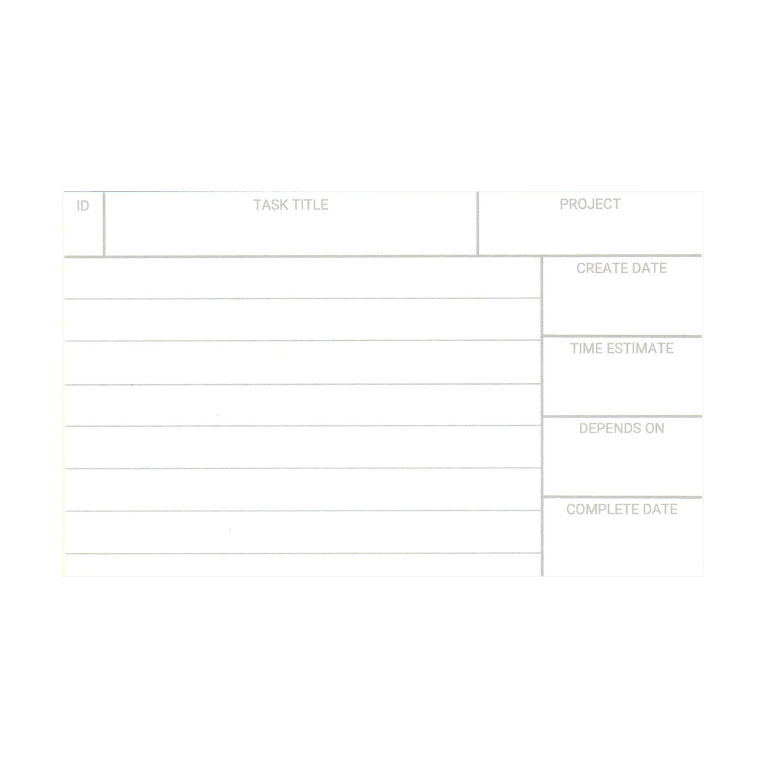https://warrenpaper.com/product/1003/

18:59 Warren Mosler 19:49 Government does not need dollars, citizens need dollars 20:18 Warren is not an economist - he is not trying to defend economic theory - he is a financial trader watching the operation of money
Warren Zevon at a JP-1 style typewriter in 1977 photo by Joel Bernstein

https://genius.com/Terri-clark-poor-poor-pitiful-me-lyrics
It's like Bruce Dickinson showed up on this track and said "More Cowbell." Must have pleased the spirit of Warren Zevon from the late 70s.
Keynote: A conversation with Christina Warren about blogging and social media • Find her on Mastodon and Bluesky
Watched this live on YouTube. Not sure if they'll archive it there or not.
https://micro.camp/
Alex Sarabia@SarabiaTXCommunications Director for @SenWarren Previously @JoaquinCastrotx @JulianCastro #GoSpursGo he/him/él
Alex Sarabia Twitter profile Senator Elizabeth Warren Communications Director Previously worked for Joaquin Castro and Julian Castro
10:57 reference to Weaver, Warren. “Science and Complexity.” American Scientist 36, no. 4 (1948): 536–44. https://www.jstor.org/stable/27826254
Much social and civic innovation is possible if the GAAF platform monopolies (Google, Amazon, Apple, Facebook) are broken up or regulated appropriately. I believe that will happen, and I hope it will happen in appropriate ways. Done right, it will release a torrent of innovation, including social and civic changes. I trust that the general level of competence is growing among digital citizens. So, I am modestly hopeful we can sort out the helpful from the harmful changes for a net positive gain.
quote
author: Warren Yoder
https://jamesclear.com/ivy-lee
Ivy Lee method: Write down a list of six items to do. Prioritize them and do them sequentially in order until complete. Rinse and repeat.
https://jamesclear.com/buffett-focus
Eliminate the inessential.
But systems of schooling and educational institutions–and much of online learning– are organized in ways that deny their voices matter. My role is to resist those systems and structures to reclaim the spaces of teaching and learning as voice affirming. Voice amplifying.
Modeling annotation and note taking can allow students to see that their voices matter in conversation with the "greats" of knowledge. We can and should question authority. Even if one's internal voice questions as one reads, that might be enough, but modeling active reading and note taking can better underline and empower these modes of thought.
There are certainly currents within American culture that we can and should question authority.
Sadly some parts of conservative American culture are reverting back to paternalized power structures of "do as I say and not as I do" which leads to hypocrisy and erosion of society.
Education can be used as a means of overcoming this, though it requires preventing the conservative right from eroding this away from the inside by removing books and certain thought from the education process that prevents this. Extreme examples of this are Warren Jeff's control of religion, education, and social life within his Mormon sect.
Link to: - Lawrence Principe examples of the power establishment in Western classical education being questioned. Aristotle wasn't always right. The entire history of Western science is about questioning the status quo. (How can we center this practice not only in science, but within the humanities?)
My evolving definition of active reading now explicitly includes the ideas of annotating the text, having a direct written conversation with it, questioning it, and expanding upon it. I'm not sure I may have included some or all of these in it before. This is what "reading with a pen in hand" (or digital annotation tool) should entail. What other pieces am I missing here which might also be included?
https://warrenellis.ltd/jot/morning-routine-and-work-day-spring-2022/
An individual whosimply buys what Buffett is buying, the researchers found, will earn an averageof more than 10 percent above market returns.
An alternative kind of note-taking was encouraged in the late Middle Agesamong members of new lay spiritual movements, such as the Brethren of theCommon Life (fl. 1380s–1500s). Their rapiaria combined personal notes andspiritual reflections with readings copied from devotional texts.
I seem to recall a book or two like this that were on the best seller list in the 1990s and early 2000s based on a best selling Christian self help book, but with an edition that had a journal like reflection space. Other than the old word rapiaria, is there a word for this broad genre besides self-help journal?
An example might be Rhonda Byrne's book The Secret (Atria Books, 2006) which had a gratitude journal version (Atria Books, 2007, 978-1582702087).
Another example includes Rick Warren's The Purpose Driven Life (Zondervan, 2002) with a journal version (Zondervan, 2002, 978-0310807186).
There's also a sub-genre of diaries and journals that have these sort of preprinted quotes/reflections for each day in addition to space for one to write their own reflections.
Has anyone created a daily blogging/reflection platform that includes these sorts of things? One might repurpose the Hello Dolly WordPress plugin to create journal prompts for everyday writing and reflection.
Wittry, Warren L. (1964). "An American Woodhenge". Cranbrook Institute of Science Newsletter. 33 (9): 102–107 – via Explorations into Cahokia Archaeology, Bulletin 7, Illinois Archaeological Survey, 1969. ^ Wittry, Warren L. "Discovering and Interpreting the Cahokia Woodhenges". The Wisconsin Archaeologist. 77 (3/4): 26–35.
https://en.wikipedia.org/wiki/Timber_circle
Some timber circle sites to look into: - Secotan in North Carolina circa 1585 - Poverty Point - Hopewell timber circles (Moorehead Circle and Stubbs Earthworks) in Ohio - Cahokia
Mercy Otis Warren
A reproduction of Carroll’snotes on his number alphabet will be found in Warren Weaver’s arti-cle “Lewis Carroll: Mathematician,” inScientific Americanfor April1956.)
I need to track down this reference and would love to see what Weaver has to say about the matter.
Certainly Weaver would have spoken of this with Claude Shannon (or he'd have read it).
Science and Complexity (Weaver 1948); explained the three eras that according to him defined the history of science. These were the era of simplicity, disorganized complexity, and organized complexity. In the eyes of Weaver what separated these three eras was the development of mathematical tools allowing scholars to describe systems of increasing complexity.
We have to know what to shoot for to simplify our lives. It means saying no over and over again to the unimportant things flying in our direction every day and remaining focused on saying yes to the few things that truly matter.
He simply mastered the art and practice of setting boundaries for himself.
A very important aspect of managing time: saying no to projects and invitations,
Watch what the billionaires do, not what they say.
Warren Buffet has transitioned his money from bank stocks to gold. This is an indication that Buffet is quietly betting against the US economy.
isexamplehasdonemuchtoprejudicethemindsofthepeopleagainstvitalpiet
Warren is a bad influence on the Natives at La Pointe
Mr.Warrenhasdoneallthisforusverycheerfully,butweoughtnottodependuponhimsomuchinfutureforthgesthing
the current mission at La Pointe is funded by Mr. Warren - local bands consider it his Mission instead that of the Board
Mr.Warre
Mr. Warren helps provide for the mission; furniture, a cow, house space, firewood, produce from agriculture, labour
A home provides stability and financial predictability
Financial crisis? Only 10 years ago?
one way that localities could qualify for grants under the Warren bill is by implementing rent stabilization or rent control.
By making sure renters stay where they are and that landlords cannot get market rent for their properties, it will discourage the building of rental units and encourage the selling of existing rental units.
first-time homebuyers
Why only first time buyers? Why not renters? If they have been actively disadvantaged by predatory policies in the past, aren't they likely to need more assistance? Also, is this what she means by 'reparations'?
this policy would stand in the way of homes being adapted to meet new needs
In circumstances where it makes more sense to rent, and there is a potential renter, why prevent that transaction from taking place?
sold to new owner-occupants, rather than to landlords who would rent them out
Isn't it the owner's property? Why shouldn't they get to decide the highest value use of the property? The bank would sell or rent the foreclosed precisely TO profit from it, especially if the previous owner is no longer able to make payments on the bank; they are losing money on the property if nobody is paying...?
Which got McCulloch thinking about neurons. He knew that each of the brain’s nerve cells only fires after a minimum threshold has been reached: Enough of its neighboring nerve cells must send signals across the neuron’s synapses before it will fire off its own electrical spike. It occurred to McCulloch that this set-up was binary—either the neuron fires or it doesn’t. A neuron’s signal, he realized, is a proposition, and neurons seemed to work like logic gates, taking in multiple inputs and producing a single output. By varying a neuron’s firing threshold, it could be made to perform “and,” “or,” and “not” functions.
I'm curious what year this was, particularly in relation to Claude Shannon's master's thesis in which he applied Boolean algebra to electronics.
Based on their meeting date, it would have to be after 1940. And they published in 1943: https://link.springer.com/article/10.1007%2FBF02478259
McCulloch and Pitts wrote up their findings in a now-seminal paper, “A Logical Calculus of Ideas Immanent in Nervous Activity,” published in the Bulletin of Mathematical Biophysics.
reference at: https://link.springer.com/article/10.1007%2FBF02478259